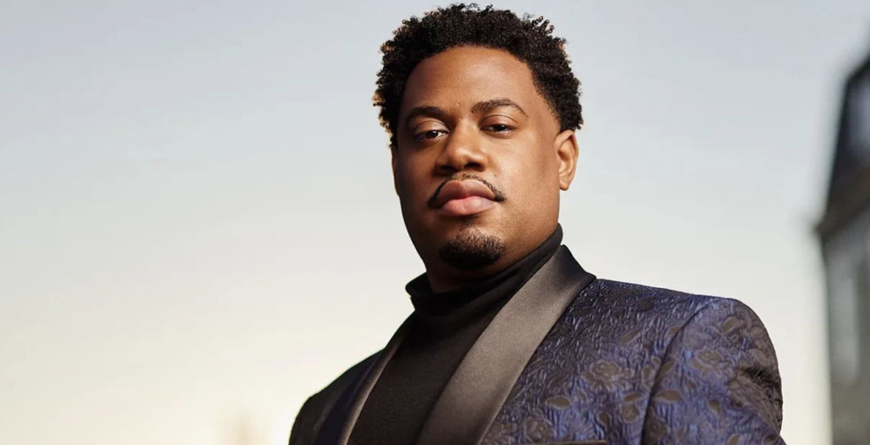
Heralded by Opera News for “voluptuous tone throughout his enormous range and phrasing with the feel of fine silk,” countertenor Key’mon W. Murrah will join Gustavo Dudamel and the Los Angeles Philharmonic at the Hollywood Bowl on Sept. 10 in a program featuring Leonard Bernstein’s Chichester Psalms and Beethoven’s beloved Symphony No. 9. Angelenos heard Murrah last year when he made his Los Angeles Opera debut in El último sueño de Frida y Diego in the role of Leonardo, which he originated with San Diego Opera, in 2022.
34-year-old Murrah, who hails from Louisville, Kentucky, sang in church early in his life and began his classical music studies as a vocal major at the Youth Performing Arts School, a magnet high school for the performing arts. In 2007, he attended the Kentucky Governor’s Schools for the Arts, a selective summer program, and went on to receive a bachelor’s degree in arts administration at the University of Kentucky.
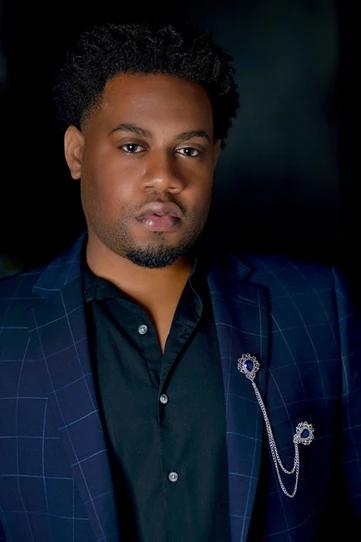
Fast forward to 2019, the year in which Murrah made his professional debut as Asprano in Vivaldi’s Motezuma at the American Baroque Opera Company in Dallas. In 2020, Murrah was a semifinalist in the Metropolitan National Council Auditions, toured with the American Spiritual Ensemble, and was a young artist at the Glimmerglass Opera Festival. He’s been on a roll ever since. In June of this year, he was the recipient of the Marian Anderson Vocal Award, and, as part of the honor, will be performing a recital at the Kennedy Center in December.
SFCV caught up with Murrah by phone, with topics ranging from his decision to become a countertenor and his operatic heroines, to his upcoming Hollywood Bowl debut.
I understand you have an identical twin brother named Kay’mon, who is also a musician. It would seem to be obvious, then, that there was music in your family?
Yes, Kay’mon is a tenor, and there was music in our family. My mother sings, her sister sings — I grew up in a family where everybody sang, on my father’s side, too. Being in the church, we all sang, [but] it took a while — in my junior and senior years of high school — for me to understand I was special.
I met a person I call my “music father,” A.T. Simpson, Jr. He worked at the Governor’s School for the Arts, and he kind of took [in] my brother and me and gave us the love of opera. He would quiz us. We would listen to the Metropolitan Opera radio [broadcast], and he would ask us, “Who’s singing?” Things like that, to keep us interested. He’s still working there and I’m still in touch with him.
When and why did you decide to be a countertenor, and is it only a matter of choice? In other words, how does one become a countertenor?
Each person’s story’s a little bit different. For me, I started in the West Louisville Boys Choir. I started as a soprano, [and] at the most there were 30–40 boys. Luckily, my voice didn’t change until way later, so I stayed a soprano a long time, longer than I should have. My brother got to switch from alto to tenor.
I do not have a degree in voice, and ended up working in arts administration. While I was working at Glimmerglass, all of my friends inspired me to sing, [so], that summer, in 2018, I became a countertenor and learned two arias. [My friends] sent a tape into Red River Lyric Opera — they were doing [Handel’s] Julius Caesar, and Tolomeo was my first full role.
I was elated, and it was very exciting for me to get this role, [because] I hadn’t been working as a singer at that time. I hadn’t been studying voice, and hadn’t been in school at that time.
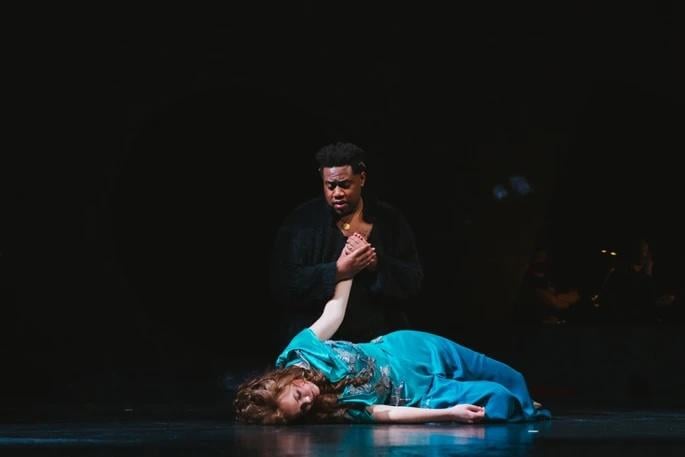
That’s quite a story. And now you’ll be making your Bowl debut with Dudamel and the LA Phil. Have you ever sung Chichester Psalms?
I am so excited to be singing at the Hollywood Bowl. I first heard of the Bowl because of Looney Tunes. [“Long-Haired Hare”] was a cartoon with Bugs Bunny pretending to be a conductor. I was maybe five at the time. That’s how I knew of it. Before I even knew about opera or cared about opera, I knew about the Bowl. It’s amazing being introduced to it at such a young age and now being able to [sing there] at this age. It blows my mind.
I haven’t sung Chichester before, but it’s really beautiful. Even though the music in the second movement is written in [Hebrew], it’s [Psalm 23] — so it’s something I can connect with, because I grew up singing that.
Have you worked with Dudamel before?
I haven’t worked with Dudamel. My guess is that I recently made my debut at LA Opera, and he might have heard me [there] and decided to use me. I’m very happy that I was chosen.
What’s your preparation process?
My process for everything is that I like to start well in advance — three to six months in advance, depending how big the piece is. Since this is in [Hebrew], I’ve asked music directors in Jewish [synagogues] [to help] so that I’m not just singing syllables, but I have a connection with the language. It’s been fun. I also listen to many recordings, not any one in particular, [but] all different types, just to hear the orchestra and how it relates to the voice.
Speaking of recordings, I understand that you used to try to emulate Leontyne Price and Maria Callas. Do you still listen to them and what other singers inspired you?
When I first started as a countertenor, I had to do a lot of self-learning. I had my teacher with me, but I had a learning curve, [so it’s] better to learn from the greatest. Leontyne Price, we have a similar type of voice [and] it was easy for me to mimic her, her breaths and sounds.
Maria Callas — she’s the greatest, and I love everything she did. There are others, too: Jessye Norman, Shirley Verrett, Florence Quivar, Grace Bumbry, Kiri Te Kanawa, Renée Fleming, Joyce DiDonato — a little bit of everybody.
Most people think countertenors can only sing early music. Why is that?
That’s part of it — that people think we can only sing early music, and that’s because we’ve come from early music. Countertenors come from castrati, and a lot of schools didn’t have teachers and faculty and opportunity to help countertenors, as well. Now that modern music is being written for countertenors, it’s allowing us to have more colors, to play with our voices more, to explore the countertenor sound. It’s the juxtaposition of modern and old for countertenors.
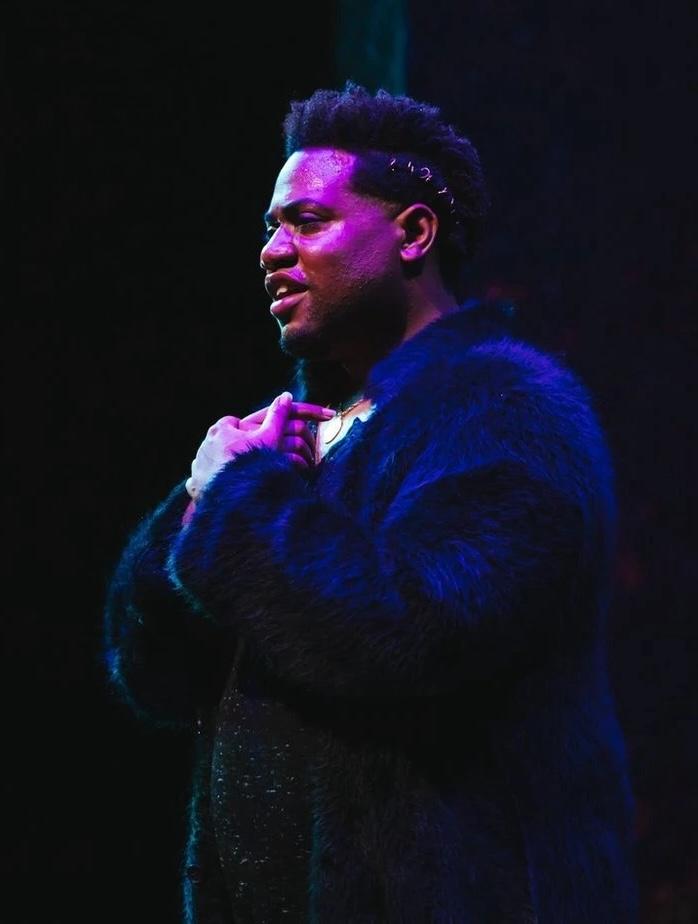
It seems the countertenor voice is having a kind of renaissance in contemporary composition. Is this a trend or a passing fad?
There are a lot of works being written. Jake Heggie is writing a one-man opera for me. It’s premiering this December, and it’s called Earth 2.0. I was doing a concert at the Aspen Music Festival and maestro [Robert] Spano heard me, and while he was [guest conductor] at the Fort Worth Symphony, he and Jake came up with this idea of a work for me.
It’s just me singing, and there will be dancers from Urban Bush Women [a theatrical dance company in New York]. I have seen the music — we had a run-through two weeks ago — and it’s going very well. I love it. This music has pushed me, vocally. I will learn so much about myself and my voice through this. It’s a new type of artistry I’m finding myself in, and I’m loving the whole process of it.
And speaking of new works for countertenor, you made your LA Opera debut last year in El último sueño de Frida y Diego by Gabriela Lena Frank, libretto by Nilo Cruz. The opera takes place partially in the underworld and the character you played returns to Earth to impersonate Greta Garbo for someone. What was that like?
That was so fun to play with this character. I created it with the first performance in San Diego in 2022. Every time I perform it, I try something new, something different. It’s so different, [for example,] from a Mozart role, because there is a way that you’re expected to do that role. In this, with the composer and librettist, I got to explore, to add different things in the score that were written [into it]. That’s in my name now.
And dressing up was the best part. It was outside of the norm, and I got to be grand for two hours, and walk across the stage and glide in those shoes.
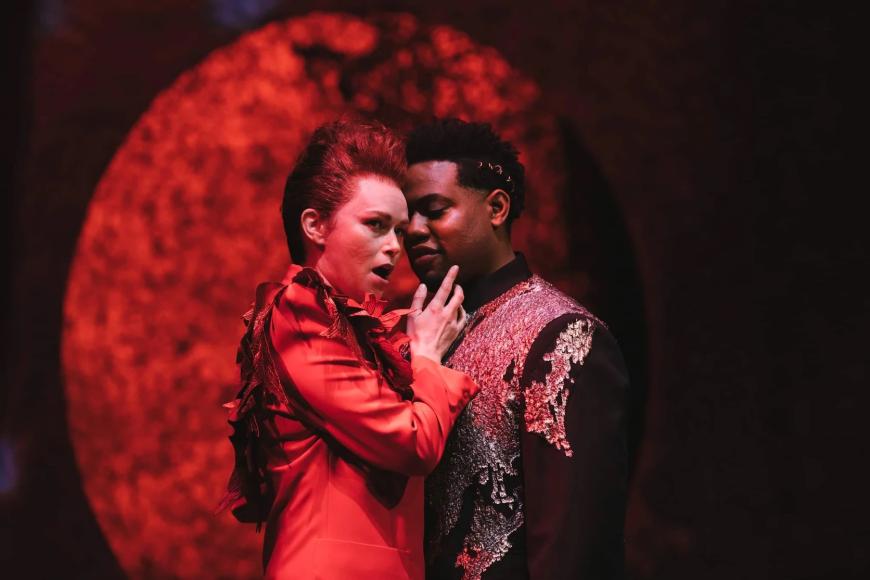
What is your practice regimen like?
I sing almost 24/7. I’m exaggerating, but I have to do a lot of repetition for me to get into the role, to understand the music, the text. It takes time for me. I’m not one of those singers who gets a new score and learns it in a month. I first start with my arias. I buzz them — lip trill — just to understand and connect my breath to the voice, and to know what I need to do with the arias.
After that, I go into the words and make sure I understand what I’m saying, my diction. I try to put that together at home, over and over again, getting into the language, the technique, the breath, and put it all together.
Given your experience, what advice do you have for aspiring countertenors?
I would say for a young countertenor starting out: get to know your voice, get to understand your voice. Sing everything and anything, so you can understand what your voice does the best, so when you pick music for auditions, you know that they would know that your voice is better than anyone’s.

